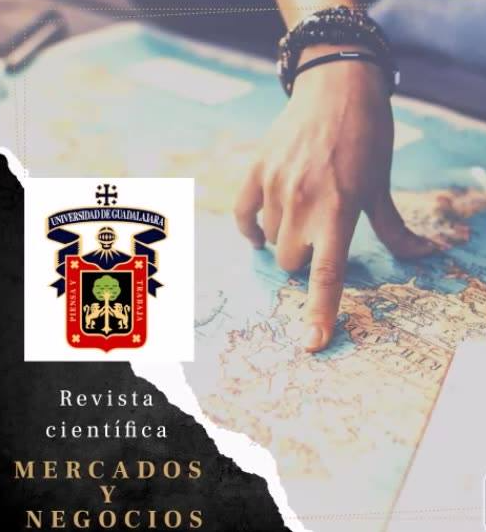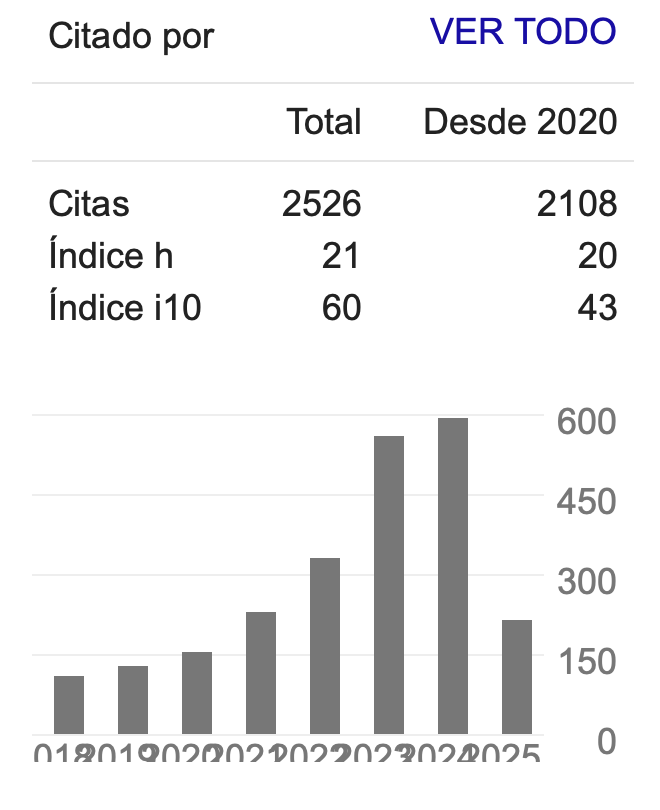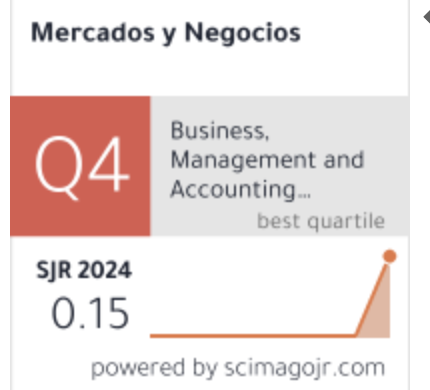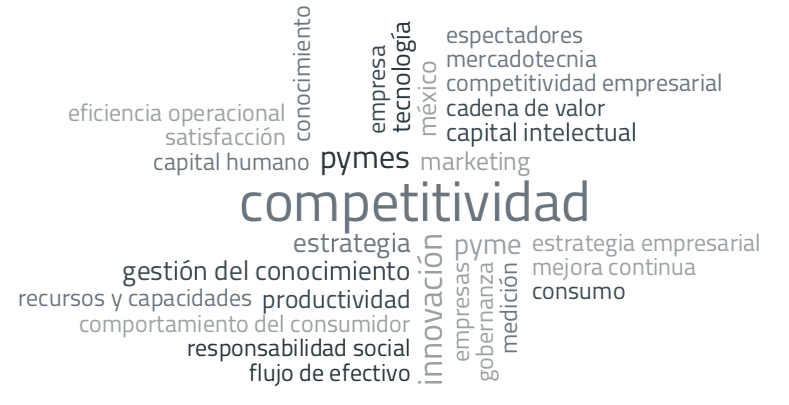Identifying Factors Motivating Users to Post Reviews on Online Travel Review Platforms: A Factor Analysis Study
DOI:
https://doi.org/10.32870/myn.vi54.7765Palabras clave:
online reviews, online travel review platforms, online travel agencies, OTA, motivationResumen
This research paper aims to identify the factors motivating users to post reviews on online travel review platforms (OTRPs). A non-probabilistic sampling technique, purposive sampling, was employed for data collection. Exploratory Factor Analysis (EFA) was conducted on a dataset of 1,313 observations. This study highlights several pivotal factors encouraging users to engage in this review-sharing phenomenon. Three key factors, social recognition and connection, enhancing travel experiences, and social validation, were identified as motivating users to write online reviews. Among these, the innate desire for social connection, the building of social capital, and the inclination to offer peer support emerge as the predominant motivations driving users' intentions to create travel-related reviews on online platforms. By analyzing the complex interplay of psychological, social, and support-based incentives, this study not only contributes to adds body knowledge to the literature of motivation theories but also offers practical guidance to online travel agencies (OTAs) managers in their pursuit of providing exceptional customer experiences and marketing strategies in an era of expanding online travel. This study assists OTAs in understanding customer experiences, tailoring services to meet travelers' expectations, and delivering enriching customer interactions.Citas
Aghakhani, N., Karimi, J., & Salehan, M. (2018). A Unified Model for Adopting Electronic Word of Mouth on Social Network Sites: Facebook as the Exemplar. International Journal of Electronic Commerce, 22 (2), 202–231. https://doi.org/10.1080/10864415.2018.1441700
Ahn, H., & Park, E. (2024). The impact of consumers' sustainable electronic-word-of-mouth in purchasing sustainable mobility: An analysis from online review comments of e-commerce. Research in Transportation Business & Management, 52, 101086. https://doi.org/10.1016/j.rtbm.2023.101086
Akhtar, N., Hameed, Z., Islam, T., Pant, M. K., Sharma, A., Rather, R. A., & Kuzior, A. (2024). Avatars of influence: Understanding how virtual influencers trigger consumer engagement on online booking platforms. Journal of Retailing and Consumer Services, 78, 103742. https://doi.org/10.1016/j.jretconser.2024.103742
Aknin, L. B., & Whillans, A. V. (2021). Helping and happiness: A review and guide for public policy. Social Issues and Policy Review, 15(1), 3-34. https://doi.org/10.1111/sipr.12069
Alam, F., Tao, M., Rastogi, R., Mendiratta, A., & Attri, R. (2024). Do social media influencers influence the vaccination drive? An application of source credibility theory and uses and gratification theory. Technological Forecasting and Social Change, 198, 122973.. https://doi.org/10.1016/j.techfore.2023.122973
Alnoor, A., Tiberius, V., Atiyah, A. G., Khaw, K. W., Yin, T. S., Chew, X., & Abbas, S. (2024). How positive and negative electronic word of mouth (eWOM) affects customers’ intention to use social commerce? A dual-stage multi group-SEM and ANN analysis. International Journal of Human–Computer Interaction, 40(3), 808-837. https://doi.org/10.1080/10447318.2022.2125610
Álvarez-Carmona, M. Á., Aranda, R., Guerrero-Rodríguez, R., Rodríguez-González, A. Y., & López-Monroy, A. P. (2022). A combination of sentiment analysis systems for the study of online travel reviews: Many heads are better than one. Computación y Sistemas, 26(2), 977-987. https://doi.org/10.13053/cys-26-2-4055
Arica, R., Cobanoglu, C., Cakir, O., Corbaci, A., Hsu, M. J., & Della Corte, V. (2022). Travel experience sharing on social media: effects of the importance attached to content sharing and what factors inhibit and facilitate it. International Journal of Contemporary Hospitality Management, 34(4), 1566-1586. https://doi.org/10.1108/IJCHM-01-2021-0046
Assaker, G. (2020). Age and gender differences in online travel reviews and user-generated-content (UGC) adoption: extending the technology acceptance model (TAM) with credibility theory. Journal of Hospitality Marketing & Management, 29(4), 428-449. https://doi.org/10.1080/19368623.2019.1653807
Bakshi, S., Gupta, D. R., & Gupta, A. (2021). Online travel review posting intentions: A social exchange theory perspective. Leisure/Loisir, 45(4), 603-633. https://doi.org/10.1080/14927713.2021.1924076
Berhanu, K., & Raj, S. (2020). The trustworthiness of travel and tourism information sources of social media: perspectives of international tourists visiting Ethiopia. Heliyon, 6(3). https://doi.org/10.1016/j.heliyon.2020.e03439
Bhatti, M. A., & Alshiha, A. A. (2023). Role of Personality Traits and E-WoM in Motivation and Intention of Travel for Leisure and Adventure. Transnational Marketing Journal, 11(2), 1-20. https://doi.org/10.58262/tmj.v11i2.2001
Bravo, R., Catalan, S., & Pina, J. M. (2021). Gamification in tourism and hospitality review platforms: How to RAMP up users’ motivation to create content. International Journal of Hospitality Management, 99, 103064. https://doi.org/10.1016/j.ijhm.2021.103064
Candi, M., Jae, H., Makarem, S., & Mohan, M. (2017). Consumer responses to functional, aesthetic and symbolic product design in online reviews. Journal of Business Research, 81, 31-39. https://doi.org/10.1016/j.jbusres.2017.08.006
Cheng, W., Tian, R., & Chiu, D. K. (2024). Travel vlogs influencing tourist decisions: information preferences and gender differences. Aslib Journal of Information Management, 76(1), 86-103. https://doi.org/10.1108/AJIM-05-2022-0261
Chih, W. H., Hsu, L. C., & Ortiz, J. (2020). The antecedents and consequences of the perceived positive eWOM review credibility. Industrial Management & Data Systems, 120(6), 1217-1243 https://doi.org/10.1108/IMDS-10-2019-0573
Ding, K., Gong, X. Y., Huang, T., & Choo, W. C. (2024). Recommend or not: A comparative analysis of customer reviews to uncover factors influencing explicit online recommendation behavior in peer-to-peer accommodation. European Research on Management and Business Economics, 30(1), 100236. https://doi.org/10.1016/j.iedeen.2023.100236
Dogra, N., & Adil, M. (2024). Should we or should we not? Examining travelers' perceived privacy, perceived security and actual behavior in online travel purchases. Journal of Vacation Marketing, 30(1), 123-142. https://doi.org/10.1177/13567667221122103
DOT. (2018). Telecom Statistics-2018. Link: https://dot.gov.in/sites/default/files/statistical%20Bulletin-2018.pdf
Evans, P., Vansteenkiste, M., Parker, P., Kingsford-Smith, A., & Zhou, S. (2024). Cognitive load theory and its relationships with motivation: a self-determination theory perspective. Educational Psychology Review, 36(1), 7. https://doi.org/10.1007/s10648-023-09841-2
Fu, P.W., Wu, C.C., & Cho, Y.J. (2017). What makes users share content on Facebook? Compatibility among psychological incentive, social capital focus, and content type. Computers in Human Behavior, 67, 23-32. https://doi.org/10.1016/j.chb.2016.10.010
Gao, Z., Cheah, J. H., Lim, X. J., Ng, S. I., Cham, T. H., & Yee, C. L. (2024). Can travel apps improve tourists’ intentions? Investigating the drivers of Chinese gen Y users’ experience. Journal of Vacation Marketing, 30(3), 505-534. https://doi.org/10.1177/13567667231152938
Geng, L., Li, Y., Zhang, Y., Jiang, Z., & Xue, Y. (2024). Advancing tourism recovery through virtual tourism marketing: An integrated approach of uses and gratifications theory and attachment to VR. Current Issues in Tourism, 27(2), 234-250. https://doi.org/10.1080/13683500.2023.2177834
Ghaderi, Z., Béal, L., Zaman, M., Hall, C. M., & Rather, R. A. (2024). How does sharing travel experiences on social media improve social and personal ties?. Current issues in tourism, 27(21), 3478-3494. https://doi.org/10.1080/13683500.2023.2266101
Gomez-Suarez, M., & Veloso, M. (2024). Enhancing social media engagement by the hospitality industry: The power of customer experience dimensions. Journal of Vacation Marketing, 30(2), 311-326. https://doi.org/10.1177/13567667221135195
Gonçalves, H. M., Silva, G. M., & Martins, T. G. (2018). Motivations for posting online reviews in the hotel industry. Psychology & Marketing, 35(11), 807-817. https://doi.org/10.1002/mar.21136
Goretzko, D., & Ruscio, J. (2024). The comparison data forest: A new comparison data approach to determine the number of factors in exploratory factor analysis. Behavior Research Methods, 56(3), 1838-1851. https://doi.org/10.3758/s13428-023-02122-4
Guerrero-Rodriguez, R., Álvarez-Carmona, M. Á., Aranda, R., & López-Monroy, A. P. (2023). Studying online travel reviews related to tourist attractions using nlp methods: the case of guanajuato, mexico. Current issues in tourism, 26(2), 289-304. https://doi.org/10.1080/13683500.2021.2007227
Herasimovich, V., Alzua-Sorzabal, A., & Guereño-Omil, B. (2024). Online networking behaviour of tourism stakeholders in a multi-destination region: A hyperlink network analysis. Journal of Destination Marketing & Management, 31, 100844. https://doi.org/10.1016/j.jdmm.2023.100844
Hossain, M. S., & Rahman, M. F. (2024). Detection of readers' emotional aspects and thumbs-up empathy reactions towards reviews of online travel agency apps. Journal of Hospitality and Tourism Insights, 7(1), 142-171. https://doi.org/10.1108/JHTI-10-2022-0487
Hussain, S., Guangju, W., Jafar, R. M., Ilyas, Z., Mustafa, G., &Jianzhou, Y. (2018). Consumers' online information adoption behavior: Motives and antecedents of electronic word of mouth communications. Computers in Human Behavior, 80, 20-32. https://doi.org/10.1016/j.chb.2017.09.019
Jung, J., Bapna, R., Gupta, A., & Sen, S. (2021). Impact of incentive mechanism in online referral programs: evidence from randomized field experiments. Journal of Management Information Systems, 38(1), 59-81. https://doi.org/10.1080/07421222.2021.1870384
Kaur, K., & Singh, T. (2021). What motivates consumers to write online reviews? Qualitative research in the Indian cultural context. Journal of Global Marketing, 34(3), 170-188. https://doi.org/10.1080/08911762.2021.1882022
Kim, S., Bi, Y., & Kim, I. (2021). Travel Website Atmospheres Inducing Older Travelers’ Familiarity: The Moderating Role of Cognitive Age. International Journal of Environmental Research and Public Health, 18(9), 4812. https://doi.org/10.3390/ijerph18094812
Kumar, L. K., Thatha, V. N., Udayaraju, P., Siri, D., Kiran, G. U., Jagadesh, B. N., & Vatambeti, R. (2024). Analyzing Public Sentiment on the Amazon Website: A GSK-based Double Path Transformer Network Approach for Sentiment Analysis. IEEE Access. https://doi.org/10.1109/ACCESS.2024.3368441
Kumar, S., & Purbey, S. (2018). Benchmarking model for motives influencing the creation of negative electronic word of mouth. Benchmarking, 25 (9), 3592–3606. https://doi.org/10.1108/BIJ-08-2017-0222
Kwak, S. Y., Shin, M., Lee, M., & Back, K. J. (2023). Integrating the reviewers’ and readers’ perceptions of negative online reviews for customer decision-making: a mixed-method approach. International Journal of Contemporary Hospitality Management. https://doi.org/10.1108/IJCHM-03-2022-0410
Le, H. T., Carrel, A. L., & Shah, H. (2022). Impacts of online shopping on travel demand: a systematic review. Transport Reviews, 42(3), 273-295. https://doi.org/10.1080/01441647.2021.1961917
Li, H., Liu, H., Shin, H. H., & Ji, H. (2024). Impacts of user-generated images in online reviews on customer engagement: A panel data analysis. Tourism Management, 101, 104855.
Li, H., Meng, F., & Hudson, S. (2023). Are hotel guests altruistic? How positive review disconfirmation affects consumers’ online review behavior. Journal of Hospitality & Tourism Research, 47(3), 528-548. https://doi.org/10.1177/10963480211030313
Li, J., Zhu, K., & Jang, J. (2023). Factors Influencing Users’ Content Sharing Intention in Travel-Related Consumer Generated Media. In Information and Communication Technologies in Tourism 2023: Proceedings of the ENTER 2023 eTourism Conference, January 18-20, 2023 (pp. 113-127). Cham: Springer Nature Switzerland.
Liang, S., Ye, Q., Zhang, X., Law, R., & Gong, C. (2022). Motivation behind review provision in online travel communities: do hometowner contributions matter?. International Journal of Contemporary Hospitality Management, 34(5), 1692-1716. https://doi.org/10.1108/IJCHM-08-2021-0980
Lis, B., & Fischer, M. (2020). Analyzing different types of negative online consumer reviews. Journal of Product & Brand Management, 29(5), 637-653. https://doi.org/10.1108/JPBM-05-2018-1876
Lubinga, S., Lubinga, M. H., Tyanai, M., & Asilla, R. (2024). Perceptions of Beneficiaries of Informal Social Protection Initiatives in Uganda: An Exploratory Factor Analysis Approach. Social Policy & Administration. 1-14. https://doi.org/10.1111/spol.13086
Manthiou, A., Ulrich, I., & Kuppelwieser, V. (2024). The travel influencer construct: An empirical exploration and validation. Tourism Management, 101, 104858. https://doi.org/10.1016/j.tourman.2023.104858
Marder, B., Erz, A., Angell, R., & Plangger, K. (2021). The role of photograph aesthetics on online review sites: Effects of management-versus traveler-generated photos on tourists’ decision making. Journal of Travel Research, 60(1), 31-46. https://doi.org/10.1177/0047287519895125
Marine-Roig, E. (2019). Destination image analytics through traveller-generated content. Sustainability, 11(12), 3392. https://doi.org/10.3390/su11123392
Marine-Roig, E. (2022). Content analysis of online travel reviews. In Handbook of e-Tourism (pp. 1-26). Cham: Springer International Publishing. https://doi.org/10.1007/978-3-030-05324-6_31-1
Marine-Roig, E., & Huertas, A. (2020). How safety affects destination image projected through online travel reviews. Journal of Destination Marketing & Management, 18, 100469. https://doi.org/10.1016/j.jdmm.2020.100469
MHA. (2011). Census of India 2011. MHA.
Mishra, M., & Mund, P. (2024). Fifty‐two years of consumer research based on social exchange theory: A review and research agenda using topic modeling. International Journal of Consumer Studies, 48(4), e13074. https://doi.org/10.1111/ijcs.13074
Mitropoulos, L., Kortsari, A., & Ayfantopoulou, G. (2021). A systematic literature review of ride-sharing platforms, user factors and barriers. European Transport Research Review, 13, 1-22. https://doi.org/10.1186/s12544-021-00522-1
Moriuchi, E., & Moriyoshi, N. (2024). A cross‐cultural study on online reviews and decision making: An eye‐tracking approach. Journal of Consumer Behaviour, 23(1), 156-170. https://doi.org/10.1002/cb.2165
MOT. (2019). India Tourism Statistics - 2018. MOT.
Natarajan, M., & Periaiya, S. (2024). Revealing consumer review attitude through online review and website cues. Journal of Consumer Marketing, 41(3), 261-280. https://doi.org/10.1108/JCM-07-2020-3938
Natrah Jamaludin, N. A., & Nik Hashim, N. M. H. (2024). Exploring the role of hedonic emotions on attitudinal loyalty and EWOM: a contingency framework and propositions. Journal of Foodservice Business Research, 1-51. https://doi.org/10.1080/15378020.2024.2318525
Nguyen, S., &Llosa, S. (2023). When users decide to bypass collaborative consumption platforms: The interplay of economic benefit, perceived risk, and perceived enjoyment. Tourism Management, 96, 104713. https://doi.org/10.1016/j.tourman.2022.104713
Nguyen, T., & Nguyen, D. M. (2024). What will make Generation Y and Generation Z to continue to use online food delivery services: a uses and gratifications theory perspective. Journal of Hospitality Marketing & Management, 33(4), 415-442. https://doi.org/10.1080/19368623.2023.2277731
Obeidat, Z. M., Xiao, S. H., Iyer, G. R., & Nicholson, M. (2017). Consumer revenge using the internet and social media: An examination of the role of service failure types and cognitive appraisal processes. Psychology & Marketing, 34 (4), 496-515. https://doi.org/10.1002/mar.21002
Oliveira, T., Araujo, B., & Tam, C. (2020). Why do people share their travel experiences on social media?. Tourism Management, 78, 104041. https://doi.org/10.1016/j.tourman.2019.104041
Ozuem, W., Willis, M., Howell, K., Ranfagni, S., & Rovai, S. (2024). Examining user-generated content, service failure recovery and customer–brand relationships: an exploration through commitment-trust theory. Internet Research, 34(3), 784-809. https://doi.org/10.1108/INTR-07-2022-0580
Park, E., Kang, J., Choi, D., & Han, J. (2020). Understanding customers' hotel revisiting behaviour: a sentiment analysis of online feedback reviews. Current Issues in Tourism, 23(5), 605-611. https://doi.org/10.1080/13683500.2018.1549025
Qiao, D., Lee, S. Y., Whinston, A. B., & Wei, Q. (2020). Financial incentives dampen altruism in online prosocial contributions: A study of online reviews. Information Systems Research, 31(4), 1361-1375. https://doi.org/10.1287/isre.2020.0949
Rialti, R., Kvítková, Z., &Makovník, T. (2023). Online Reputation Management in Tourism: Emerging Themes, Theories, Problems, and Solutions. In Online Reputation Management in Destination and Hospitality (pp. 3-25). Emerald Publishing Limited. https://doi.org/10.1108/978-1-80382-375-120231001
Román, S., Riquelme, I. P., & Iacobucci, D. (2024). Antecedents and consequences of perceived helpfulness of extremely positive and exaggerated reviews. Journal of Retailing and Consumer Services, 80, 103907. https://doi.org/10.1016/j.jretconser.2024.103907
Roy, G., Datta, B., Mukherjee, S., Eckert, A., & Dixit, S. K. (2024). How online travel reviews sources affect travelers’ behavioral intentions? Analysis with source credibility theory. Tourism Planning & Development, 21(3), 299-329. https://doi.org/10.1080/21568316.2023.2229296
Sharafuddin, M. A., Madhavan, M., & Wangtueai, S. (2024). Assessing the Effectiveness of Digital Marketing in Enhancing Tourist Experiences and Satisfaction: A Study of Thailand’s Tourism Services. Administrative Sciences, 14(11), 273. https://doi.org/10.3390/admsci14110273
Shin, H., Lee, J., & Kim, N. (2024). Workcation (Workation) travel experiences, satisfaction and revisit intentions: focusing on conceptualization, scale development, and nomological network. Journal of Travel Research, 63(5), 1150-1168. https://doi.org/10.1177/00472875231188717
Shin, S., Chung, N., Xiang, Z., & Koo, C. (2019). Assessing the impact of textual content concreteness on helpfulness in online travel reviews. Journal of Travel Research, 58(4), 579-593. https://doi.org/10.1177/0047287518768456
Singh, N., & Yadav, P. (2018). Social Media Influences Holiday Travel Decisions: A Rationale for Profound Analysis. Prabandhan: Indian Journal of Management, 11 (2), 40-56. https://doi.org/10.17010/pijom/2018/v11i2/121395
Su, L., Yang, Q., Swanson, S. R., & Chen, N. C. (2022). The impact of online reviews on destination trust and travel intention: The moderating role of online review trustworthiness. Journal of Vacation Marketing, 28(4), 406-423. https://doi.org/10.1177/13567667211063207
Talwar, S., Dhir, A., Kaur, P., & Mäntymäki, M. (2020). Why do people purchase from online travel agencies (OTAs)? A consumption values perspective. International Journal of Hospitality Management, 88, 102534. https://doi.org/10.1016/j.annals.2020.102860
Teng, S., Khong, K. W., Chong, A. Y. L., & Lin, B. (2017). Persuasive electronic word-of-mouth messages in social media. Journal of Computer Information Systems, 57(1), 76-88. https://doi.org/10.1080/08874417.2016.1181501
Tseng, L. Y., Chang, J. H., & Zhu, Y. L. (2024). What drives the travel switching behavior of Chinese Generation Z consumers. Journal of Tourism Futures, 10(1), 131-146. https://doi.org/10.1108/JTF-07-2020-0110
Tsiotsou, R. H. (2021). Value creation in tourism through active tourist engagement: A framework for online reviews. Women’s Voices Tourism Res, 12, 1-14. https://doi.org/10.14264/817f87d
Vilnai-Yavetz, I., & Levina, O. (2018). Motivating social sharing of e-business content: Intrinsic motivation, extrinsic motivation, or crowding-out effect? Computers in Human Behavior (79), 181-191. https://doi.org/10.1016/j.chb.2017.10.034
Wang, R., Wu, C., Wang, X., Xu, F., & Yuan, Q. (2024). E-Tourism information literacy and its role in driving tourist satisfaction with online travel information: A qualitative comparative analysis. Journal of Travel Research, 63(4), 904-922. https://doi.org/10.1177/00472875231177229
Xiang, L., Zheng, X., Zhang, K. Z., & Lee, M. K. (2018). Understanding consumers' continuance intention to contribute to online reviews. Industrial Management & Data Systems, 118 (1), 22-40. https://doi.org/10.1108/IMDS-09-2016-0395
Xu, X. (2020). How do consumers in the sharing economy value sharing? Evidence from online reviews. Decision Support Systems, 128, 113162. https://doi.org/10.1016/j.dss.2019.113162
Yan, L., & Wang, X. (2018). Why posters contribute different content in their positive online reviews: A social information-processing perspective. Computers in Human Behavior, 82, 199-216. https://doi.org/10.1016/j.chb.2018.01.009
Yang, F. X. (2017). Effects of restaurant satisfaction and knowledge sharing motivation on eWOM intentions: the moderating role of technology acceptance factors. Journal of Hospitality & Tourism Research, 41 (1), 93-127. https://doi.org/10.1177%2F1096348013515918
Yang, X., Zhang, L., & Feng, Z. (2024). Personalized tourism recommendations and the E-tourism user experience. Journal of Travel Research, 63(5), 1183-1200. https://doi.org/10.1177/00472875231187332
Yu, Z., Zhang, Z., Law, R., & Zhang, Z. (2024). Resonance of Review Behavior: Will People Follow in Their Friends’ Footsteps?. Journal of Interactive Marketing, 10949968231219973. https://doi.org/10.1177/10949968231219973
Yusuf, A. S., Che Hussin, A. R., & Busalim, A. (2018). Influence of eWOM engagement on consumer purchase intention in social commerce. The Journal of Services Marketing, 32 (4), 493-504. https://doi.org/10.1108/JSM-01-2017-0031
Zainal, N. T., Harun, A., & Lily, J. (2017). Examining the mediating effect of attitude towards electronic words-of mouth (eWOM) on the relation between the trust in eWOM source and intention to follow eWOM among Malaysian travelers. Asia Pacific Management Review, 22 (1), 35-44. https://doi.org/10.1016/j.apmrv.2016.10.004
Zhang, Z., Zhang, Z., Liu, S., & Zhang, Z. (2024). Are high-status reviewers more likely to seek anonymity? Evidence from an online review platform. Journal of Retailing and Consumer Services, 78, 103792. https://doi.org/10.1016/j.jretconser.2024.103792
Descargas
Publicado
Cómo citar
Número
Sección
Licencia
Derechos de autor 2024 Animesh Kumar Sharma, Rahul Sharma

Esta obra está bajo una licencia internacional Creative Commons Atribución-NoComercial 4.0.
Mercados y Negocios por Departamento Mercadotecnia y Negocios Internacionales. Universidad de Guadalajara se distribuye bajo una Licencia Creative Commons Atribución-NoComercial 4.0 Internacional.
Basada en una obra en http://revistascientificas.udg.mx/index.php/MYN/.
Los autores conservan los derechos de autor.








